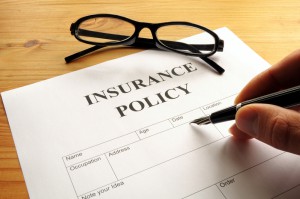 Buying insurance is a necessary expenditure for your business. Some types of insurance – such as commercial auto insurance – may be required by law for you to purchase. Other insurances protect your business, your employees, and your own personal finances should an accident or other damages be incurred against your business.
Buying insurance is a necessary expenditure for your business. Some types of insurance – such as commercial auto insurance – may be required by law for you to purchase. Other insurances protect your business, your employees, and your own personal finances should an accident or other damages be incurred against your business.
Not all insurance policies are the same; and not all insurance companies are going to charge you the same rates. In order to save money on your business insurance, you need to review your coverage requirements, find ways to trim any unnecessary insurance costs, and look for the best deals in a variety of places.
Review Your Coverage
If it’s been a while since you examined your current policy, then take the time to carefully do so. Your business insurance needs may have changed since the day you purchased the policy, leaving you either under-insured or overpaying for coverage you don’t need.
- Request a quote for your insurance needs from several different insurance companies. If your current provider doesn’t offer the lowest price, show them the competitor’s quote and ask them to match it. Many agencies would rather give you a deal than lose your business altogether.
- Remember to plan ahead to make sure that your insurance will cover your business today, as well as in the year ahead. If you plan on hiring more employees or adding to your truck fleet, your insurance needs will change.
Trim Excesses
Haggling and playing companies off each other only works so well at reducing your premiums. In order to cut costs even further, you should re-examine your insurance needs, prioritize important items, and trim the excess.
- Take an inventory of your property and assets and determine their value, or how much it would cost to replace everything new. Now estimate the replacement costs if you replaced all of your equipment with used items. How does that difference in value affect the cost of your insurance premium?
- One sure-fire way to instantly lower your insurance premiums is to increase your deductible – the amount of replacement costs you have to pay out-of-pocket before your insurance company pays for the rest. Only increase your deductible to the amount you can afford to pay up-front should an emergency occur.
- Sometimes your liability insurance can be lowered if you install safety improvements on your property. Increasing safety decreases liability risks, so ask if your insurance carrier will lower your premium if you install safety features.
Look for Deals
There are several ways you can obtain special deals on your insurance premiums that can lower your total cost of insurance.
- If you purchase your commercial auto insurance, property insurance, liability insurance, and other types of coverage all through the same insurer, you may qualify for a better rate than if you source your coverage from several different companies.
- Purchasing your policies all from the same insurer can also reduce your rates if you officially bundle your insurance coverage in a Business Owners Policy. These pre-packaged policies include many of the insurances that your business needs, and may or may not be customizable (depending on the insurance company).
- You can source group insurance rates from trade organizations, credit unions, veterans associations, and more. Check your membership details to find out if you qualify for reduced rates.
Whatever kind of policy you choose be sure that it still provides all the coverage your business needs. Adding riders to your insurance to increase your coverage amounts can also increase your premiums, reducing the cost-effectiveness of your so-called deal.
Megan Webb-Morgan is a web content writer for B2B lead generation resource, ResourceNation. She writes about small business, focusing on topics such as business sales. Follow Resource Nation on Google+ and Twitter, too!
Image Credit: Shutterstock.com



